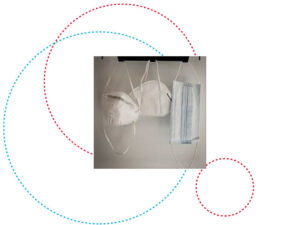Research Luxembourg has announced the CoVaLux research programme (COVID-19, Vaccination & long-term health consequences of COVID-19 in Luxembourg), a comprehensive study aimed at addressing key unanswered questions related to COVID-19. It focuses specifically on vaccination and the longer-term health impact of COVID-19.
The University of Luxembourg is a core participant in the programme, alongside other public research institutions and clinical partners.
CoVaLux will assess the short- to mid-term impact of vaccination, vaccine effectiveness, post-vaccination and breakthrough infections. The study will also investigate the evolution of the immune response, the emergence of new variants and clinical symptoms in cases of re-infection. An additional objective will be to identify both the viral factors associated with resistance to vaccines and patient characteristics that can be linked to re-infections. As for Long COVID, CoVaLux will elucidate several aspects such as the characteristics and prevalence of symptoms in COVID-19 patients, the existence of risk factors for developing Long COVID, potential links to pre-existing comorbidities or co-infections. Socio-economic and environmental determinants of Long COVID will be examined as well, in view of enhancing its prevention, diagnosis and treatment.
“The significant public health burden of the pandemic on the Luxembourg population is shifting from that of a purely infectious disease to that of a de-facto chronic infection, which also more broadly extends to the psychological and socio-economic sphere. It needs to be addressed,” says Dr Guy Fagherazzi, Director of the Department of Precision Health at the Luxembourg Institute of Health (LIH) and co-spokesperson of CoVaLux.
CoVaLux will build on previous national studies such as Predi-COVID and CON-VINCE, and rely on complementary data retrieved from different sources.
“CoVaLux represents a coordinated effort at the national level to answer important unsolved questions related to COVID-19 and its consequences, relying on an interdisciplinary approach at the crossroads of immunology, psychology, epidemiology, digital health, social science and public health,” states Paul Wilmes, Professor in Systems Ecology at the Luxembourg Centre for Systems Biomedicine (LCSB) of the University of Luxembourg and co-spokesperson of CoVaLux.
View the full press release by Research Luxembourg.
For further information on CoValux via Research Luxembourg: https://researchluxembourg.lu/covalux
© University of Luxembourg / Photo: Isaac Quesada on Unsplash
